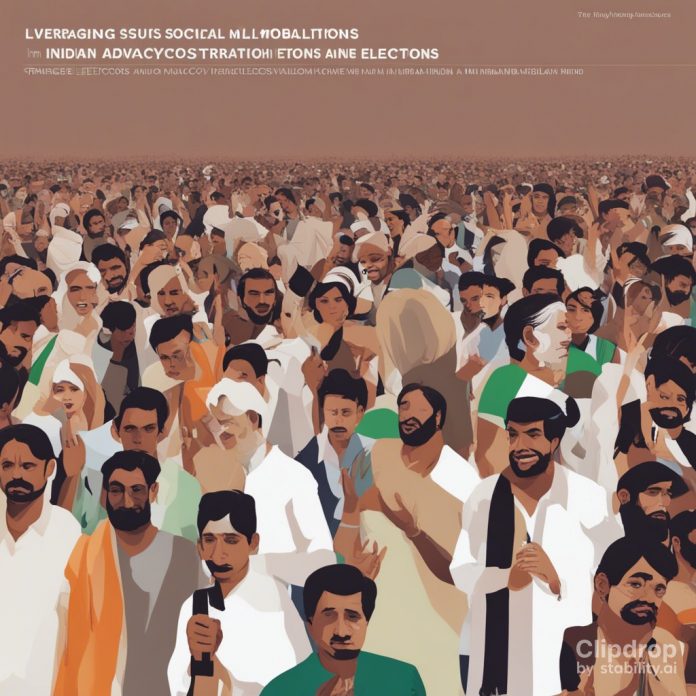Introduction
In the dynamic landscape of Indian politics, leveraging social issues has become a cornerstone of election campaigns. Advocacy and mobilization around pertinent social issues can significantly impact voter sentiment and ultimately influence election outcomes. In this blog, we will delve into the strategies for effectively harnessing social issues for advocacy and mobilization in Indian elections.
The Role of Social Issues in Indian Elections
Social issues encompass a wide range of topics, including healthcare, education, poverty alleviation, gender equality, caste-based discrimination, religious harmony, and environmental sustainability, among others. In Indian elections, these issues often take center stage due to their direct relevance to the daily lives of citizens. Here are key reasons why social issues matter in Indian politics:
- Voter Concerns: Many social issues directly affect the lives and well-being of voters. Candidates who address these concerns effectively can build strong connections with the electorate.
- Identity Politics: In India’s diverse socio-cultural landscape, identity-based social issues often play a crucial role. Candidates who advocate for marginalized communities or specific identity groups can rally significant support.
- Youth Mobilization: Young voters, who form a substantial portion of the electorate, are particularly attuned to social issues. Campaigns that resonate with their values and aspirations can gain traction.
- Media Attention: Social issues tend to receive extensive media coverage. Candidates who champion these causes can secure valuable media exposure and public attention.
Strategies for Advocacy and Mobilization
- Issue Identification: Begin by identifying the most salient social issues in your constituency. Conduct surveys, engage with local communities, and analyze data to pinpoint the areas of concern.
- Tailored Messaging: Craft campaign messages that directly address the identified social issues. Messages should be tailored to resonate with the specific demographics and concerns of your constituency.
- Local Allies: Build relationships with local activists, community leaders, and organizations that are already working on these social issues. Their support and endorsement can lend credibility to your campaign.
- Digital Campaigning: Leverage digital platforms and social media to amplify your message. Share stories, statistics, and policy proposals related to social issues to engage a wider audience.
- Community Engagement: Host town hall meetings, community forums, and awareness campaigns focused on the chosen social issues. Engage directly with constituents to understand their concerns and convey your commitment to addressing them.
- Policy Proposals: Develop comprehensive policy proposals that outline your plans for tackling social issues. Be specific about the actions you intend to take if elected.
- Coalition Building: Collaborate with like-minded candidates and parties on the regional or national level to create a broader coalition for social change.
- Youth Outreach: Engage with youth through student organizations, colleges, and universities. Encourage them to become active participants in advocating for social issues.
- Door-to-Door Campaigning: Traditional door-to-door canvassing can be highly effective in connecting with voters on a personal level and discussing social issues.
- Data Analytics: Use data analytics to track public sentiment and adjust your campaign strategies accordingly. Monitor the impact of your advocacy efforts and adjust your messaging as needed.
Conclusion
Leveraging social issues for advocacy and mobilization in Indian elections is not just a political strategy but a reflection of a candidate’s commitment to addressing the concerns of their constituents. By identifying, addressing, and advocating for social issues, candidates can build a strong and loyal voter base, gain media attention, and ultimately, make a meaningful impact on the communities they seek to represent. In a democracy as diverse as India, embracing social issues as a core component of election campaigns is not just effective politics, but also a powerful tool for social change.

